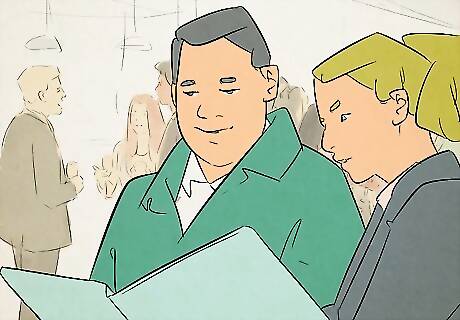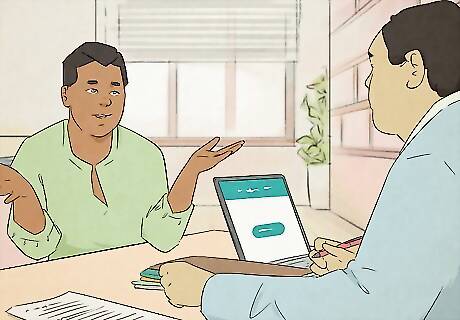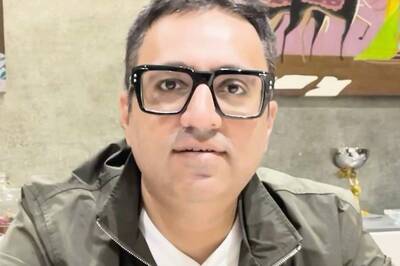
views
Respond with an action instead of a title.

Remember, ‘do’ is a verb. Focus on the tasks you carry out and the skills you put to use every day. It’s much easier to connect with someone over an activity than a job description. “I turn code into websites.” “I build houses.” “I talk with important clients on the phone.”
Focus on how you help people.

Talk about how you make others’ lives easier. Framing your answer in the context of your service not only makes your work sound more interesting, it efficiently showcases what value you bring to the table. You help people every day, whether it’s big or small. Own it! “I help people manage their money.” “I help people avoid misinformation.” “I help brands tell their stories.”
Talk about what your job means to you.

Don’t be afraid of passion and vulnerability. The question “what do you do?” is a chance for people to get to know you better. The more people can understand why your work is significant to you personally, the more they want to help you succeed at it. “I work in admissions because I’ve always believed in the value of education.” “I work in environmental science because I want to protect the planet.” “I work in fundraising, because this cause is really important to me.”
Market yourself.

Have confidence in your achievements. Don’t just tell someone what you do, tell them how good you are at doing it. Accomplishments don’t just have to be related to your day job either. If you have other skills you’re proud of, note them. "I’ve been the number one sales rep for Whirlpool Coolers three years in a row.” “I’m a plumber and I’ve fixed over 400 sinks in the past year.” “I’m a custodian and nationally-ranked poet.”
Tell your story.

Make your job your hero’s journey. We process information better when it’s presented to us in narrative-form. When someone asks “what do you do?,” they’re really asking for the story of you. Think of it like a three-act structure. In the set-up, you tell them your goals and where you’ve worked before. In the climax, you tell them what you’re currently doing and how you’re trying to realize those goals. In the resolution, you connect the dots, and tell them why you're here. “I started as a fast food worker where I learned how much I love to cook. Now, I really want to curate menus.” “Working as a physical therapist taught me what the body is capable of. I think polishing that skill for the past three years would make me a great assistant coach.” “I grew up poor, which made me value every penny. That inspired me to get a degree in finance to prepare me for asset management.”
Show your work.

Showing someone what you’re capable of is always better than telling them. If you have an impressive portfolio, showcase it. If people can visualize what you’ve done instead of just hearing about it, they’re all the more likely to respond positively. “Here’s some of my graphic designs.” “Here’s one of the houses I sold recently.” “Here’s a reel I did at my last advertising firm.”
Use your answer as a launching pad into a conversation.

Find an organic way to discuss other topics. People love to talk about themselves and their passions. When someone asks what you do, don’t just ask them the same thing. Ask them why they like it, what they would change about it, what else they like doing. The more you learn about each other, the more likely you are to find a common interest and connect. “I’m a travel agent. What’s your favorite vacation you’ve been on?” “I’m a lifeguard. Do you like to swim?” “I’m a box office attendant. Seen any good movies lately?”
Give an interesting anecdote.

People want your job to be interesting. The more you can frame your day-to-day work as unique, the more you demonstrate how rare and individual your value is. “I work in waste management. You won’t believe what some people throw away” “I’m in marketing. I heard the strangest pitch the other day.” “I’m a chiropractor. I have the silliest patient.”
Use the “like ____, for ____” structure.

Similes are your friend. If your job feels too difficult or jargon-y to explain concisely, comparing it to two more relatable or well-known industries helps frame it in a way that people can easily understand. “I’m in I.T. I’m like a mechanic for computers. ”I’m an agronomist. I’m like a doctor for crops.” ”I’m a speech pathologist. I’m like a personal trainer for talking.”
If the environment is more casual, tell a joke.

Humor is a great way to stand out. If you can find the comedy in your job, it makes you more memorable. When people laugh, they let their guards down which makes it easier to connect. “I’m a preschool teacher. I turn 4-year-olds into geniuses.” “I work at Build-A-Bear. I’ve given life to over 5,000 stuffed giraffes.” “I work in surveys. Do you find this information very interesting, a little interesting, or not interesting?”
Discuss your goals too.

If you’re not working anywhere, focus on what you want to accomplish. Being unemployed or in-between jobs is nothing to be ashamed of. “What do you do?” isn’t just a career-based question. In fact, showing you’re passionate about something in your free time may make you stand out more. “I like drawing; I really want to get into graphic design.” “I’ve always been good with numbers. I’d like to work my way up as an accountant.” “I love sports. I think working at a gym would be a really good fit.”




















Comments
0 comment